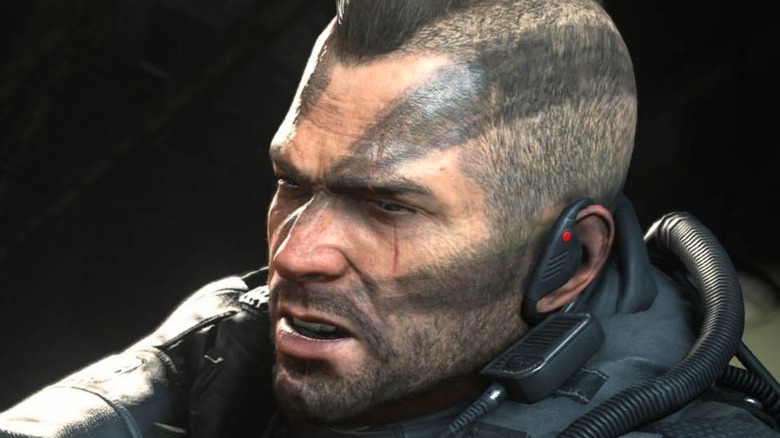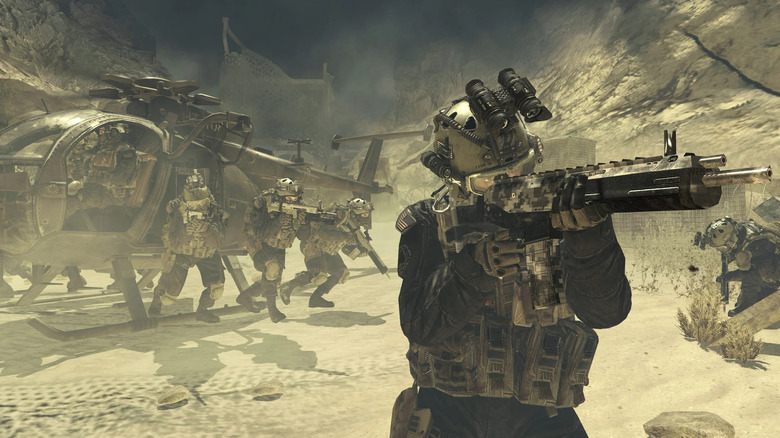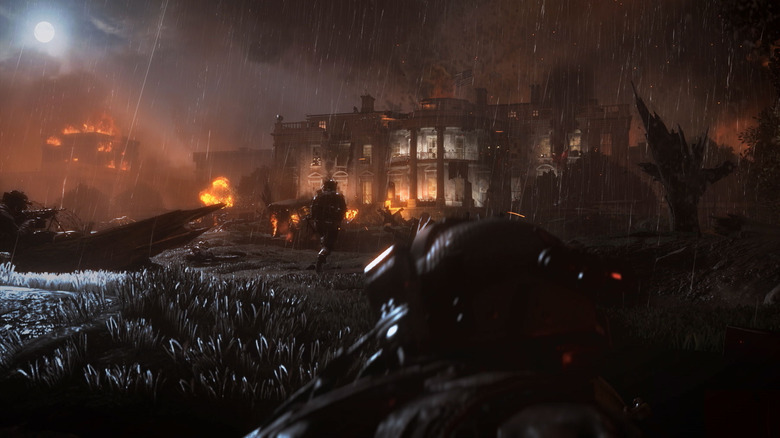Things Activision Blizzard Needs To Get Right About Modern Warfare 2
Activision Blizzard has announced that sometime in 2022, gamers will be getting sequels to both 2019's "Call of Duty: Modern Warfare" and the free-to-play battle royale mode "Call of Duty: Warzone." Because the latest entries in the series in one of the most long-running and iconic video game franchises ever, there are plenty of expectations that come with such announcements. Not only does Activision Blizzard have to satisfy its core audience, but it also needs to find ways to attract new players whilst competing with other equally popular first-person shooters, such as new games like "Halo Infinite" and legacy titles like "Counter Strike: Global Offensive."
But the "Call of Duty" franchise isn't just competing with titles made by other developers — it is also competing with itself. The franchise has a legacy spanning nearly two decades, including games that were huge hits and others that were massive flops. The series' latest entry, "Call of Duty: Vanguard," received solid marks from critics. However, past titles such as "Call of Duty: Infinite Warfare" were panned by critics and gamers alike. So, how can the sequel to 2019's "Modern Warfare" endear itself to fans and return the franchise to peak form? Here's everything this game will need.
Modern Warfare's sequel must honor its roots
In case you didn't already know, 2019's "Call of Duty: Modern Warfare" wasn't an entirely new concept. It was Infinity Ward's reboot to one of the most revered and beloved titles in its entire history, 2007's "Call of Duty 4: Modern Warfare." The title became so critically acclaimed and cherished by its fanbase that it spawned a direct sequel, "Call of Duty: Modern Warfare 2" in 2009 turned out to be one of the most highly rated video games of all time. If the sequel to 2019's "Modern Warfare" seeks to faithfully continue the series, it needs to honor those roots.
In order to do that, Activison — and Infinity Ward, more specifically — must prioritize making a good game that will be engaging long-term, without shameful microtransactions. A cash grab in the name of one of gaming's crown jewels could sour the entire franchise and turn it from a powerhouse to yesterday's news. The legacy of 2009's "Modern Warfare 2" should be respected, if the future game ultimately uses its namesake. A failure to do this could result in a mass exodus of the fanbase to competing properties, or better titles of the past.
Modern Warfare 2 must have a great campaign
When players first think of "Call of Duty: Modern Warfare 2", it's likely they remember the game's multiplayer. Equipped with a vast selection of weapons and attachments, excellent map design, and an emphasis placed on communicating within its trash talk-laden lobbies, "Modern Warfare 2" exists as a time portal to a when gamers were still figuring out online multiplayer, due to its bare bones setup, accessibility, and fun factor. And yeah, a lot of that aforementioned trash talk we were all forced to endure hasn't aged well due to its constant toxicity and barbed nature. But even still, "Modern Warfare 2's" multiplayer remains one of the pillars of modern multiplayer gaming and essentially wrote the blueprint for many games that came after it.
A good multiplayer mode isn't all "Modern Warfare 2" boasted, though. It also had a great single-player campaign. The game's story follows multiple protagonists from both the Army Rangers and SAS special forces as they wage war against Russian ultranationalists who have sent the world's political forces into a tailspin after they organize a terrorist attack, framing the United States in the process. Its single-player campaign is subversive, immersive, and thought-provoking as it sends the player through a journey of shock, betrayal, and horror associated with global warfare that is so controversial, the game remains banned in Russia to this day. These types of stories aren't commonplace in gaming anymore. In order for the sequel to 2019's "Modern Warfare" reboot to have a chance, it must at least try to emulate the narrative experience of the original.



